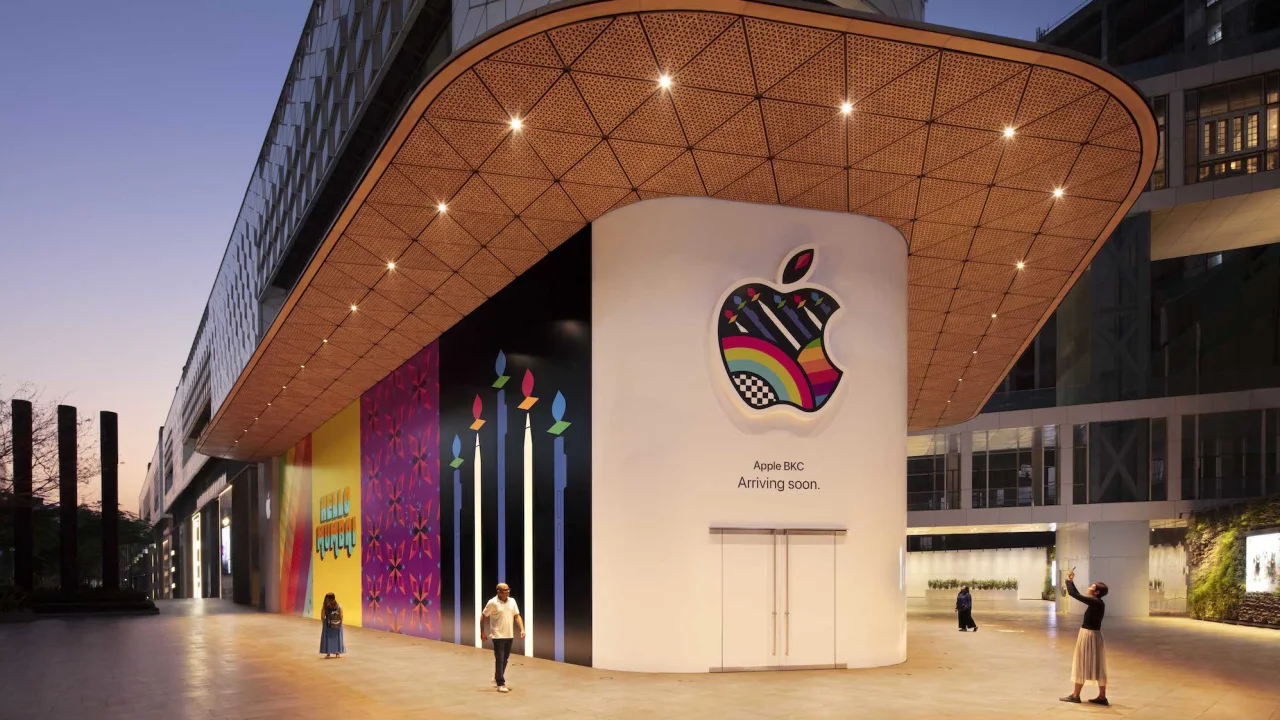|
Getting your Trinity Audio player ready...
|
After years of relying on third-party resellers, Apple is finally set to open its first official store in India as it seeks to tap into the country’s growing market and manufacturing base. The new store is located in Mumbai’s Jio World Drive Mall and is expected to open soon.
Apple had initially planned to open a store in India in 2021 but was forced to postpone its plans due to the COVID-19 pandemic. With the new store, the company aims to take control of its brand image and provide customers with an end-to-end user experience.
India’s relaxation of investment rules in 2019 paved the way for foreign retailers to set up shop in the country, spurring Apple to launch an online store in India last year. The company also ramped up manufacturing in India to reduce its reliance on mainland China, which has been hit by supply chain disruptions. Counterpoint Research reported a 65% increase in the number of iPhones made and shipped from India in 2022 compared to the previous year.
Apple’s top contract manufacturers, Foxconn and Wistron, have been growing their presence in India. Last month, Foxconn CEO Young Liu announced a major deal in the country during his meeting with Prime Minister Narendra Modi. According to a Bloomberg report, the Taiwanese company plans to invest $700 million in a new plant in the state capital of Bengaluru to manufacture iPhone parts.
Despite Apple’s strong sales of premium smartphones, it still lags behind other brands in the overall Indian market, which is led by Xiaomi and Samsung. However, analysts predict that Apple’s market share could grow as it opens its own stores in the country, particularly in Mumbai, which is the second-largest Indian market for Apple after Delhi. Prachir Singh, a senior analyst at Counterpoint, expects Apple’s market share in India to increase from its current 1% to over 5% this year.
The opening of the physical store in Mumbai is a significant step forward for Apple’s expansion into the Indian market, which it views as a critical manufacturing base and an increasingly important source of revenue.
The Indian market is crucial for Apple’s future growth, as it seeks to tap into the country’s vast population of more than 1.3 billion people, many of whom are only just starting to buy smartphones.
Apple has also been seeking to shift its production away from China, where it has faced rising labor costs and tensions with the US government over trade. The company has been ramping up its manufacturing operations in India over the past few years, and the opening of a physical store will only add to its presence in the country.
While India still has a long way to go in terms of becoming a significant market for iPhones, the potential for growth is enormous, especially as more people in the country move up the economic ladder and begin to have greater disposable income.
The opening of the Mumbai store is likely to be closely watched by Apple investors and analysts, who will be looking to see how well the company is able to establish itself in the Indian market and how quickly it is able to gain market share.



